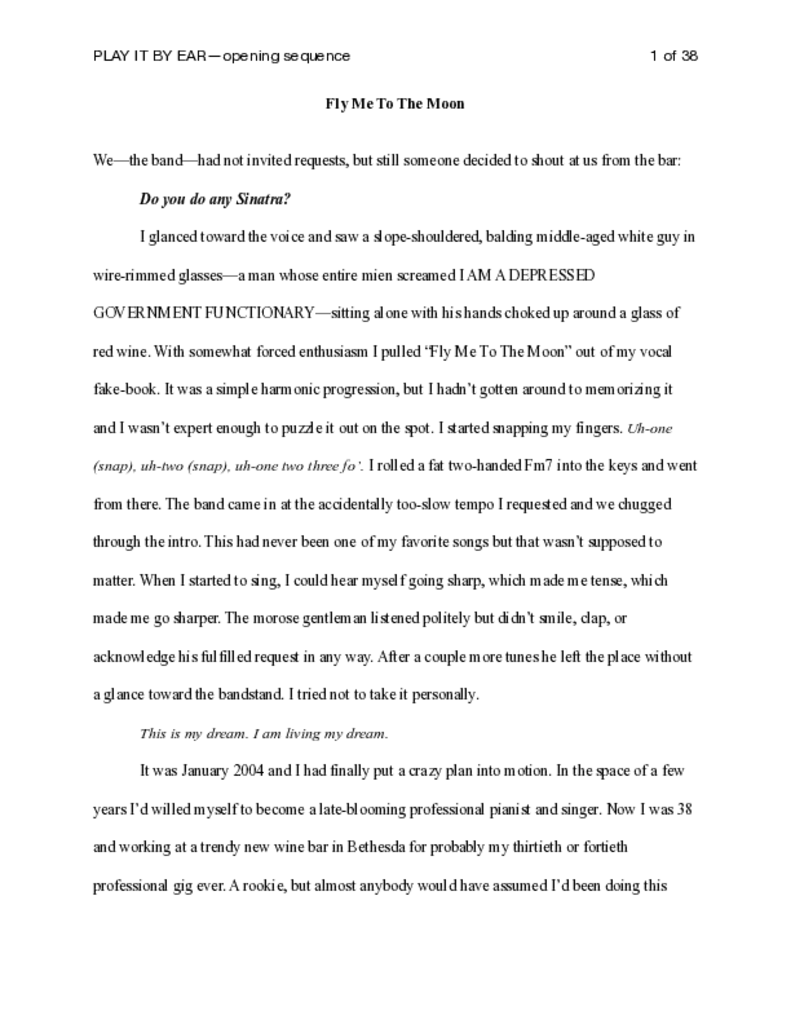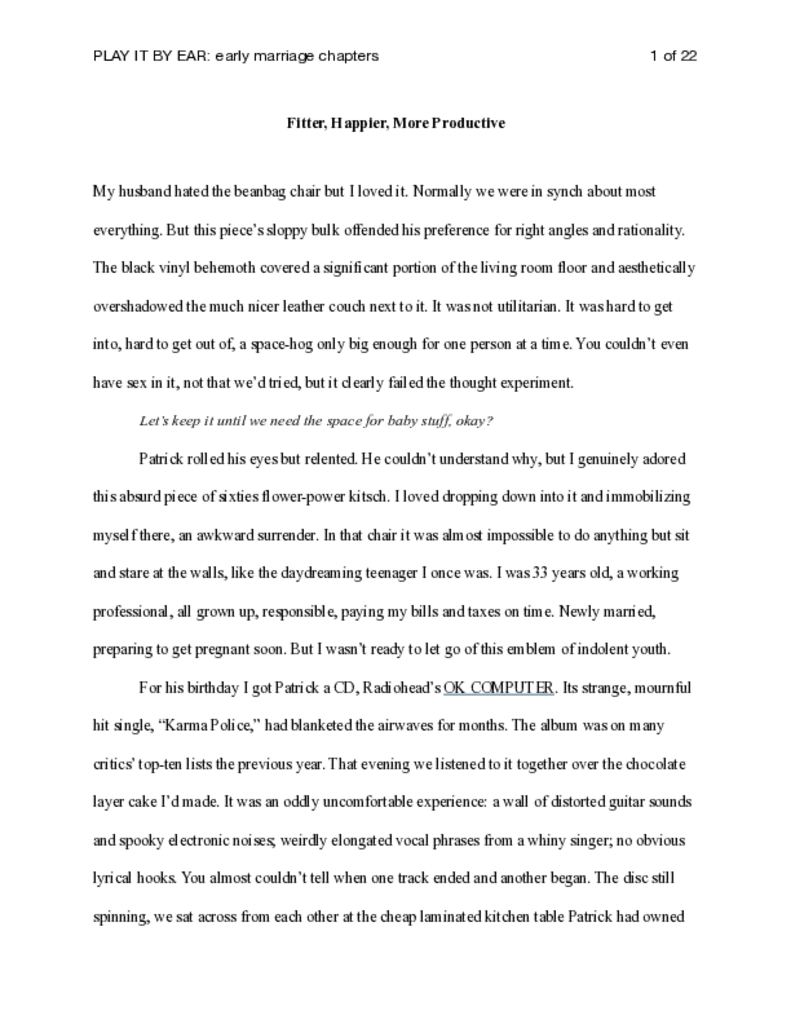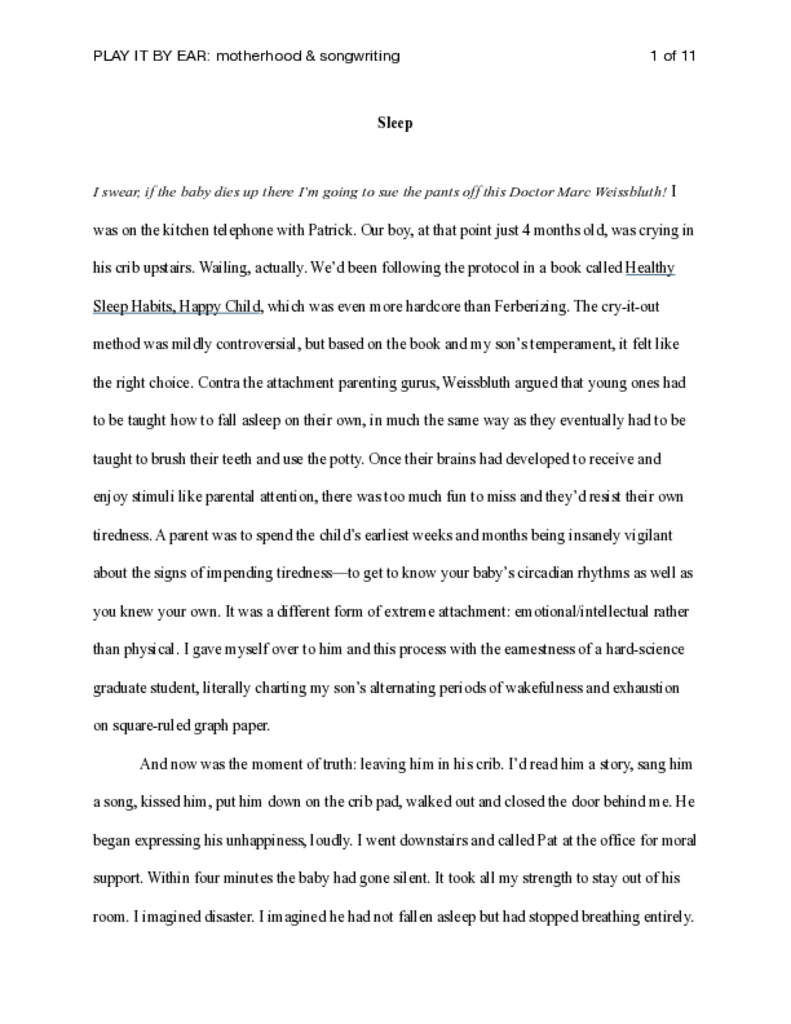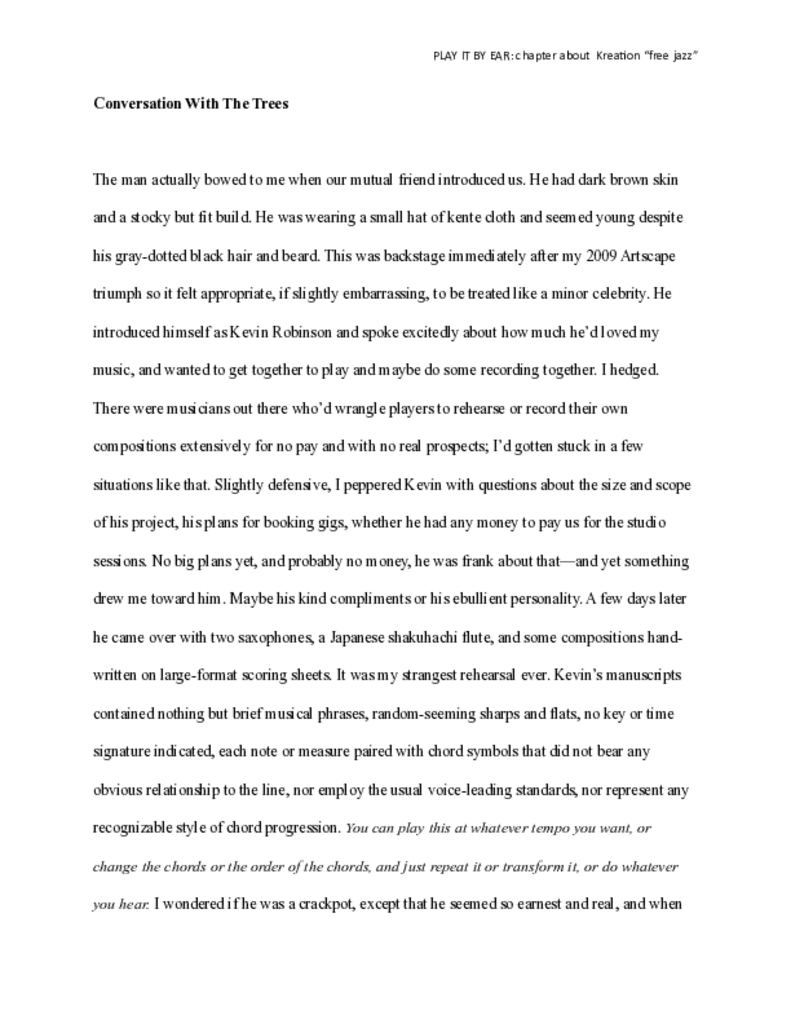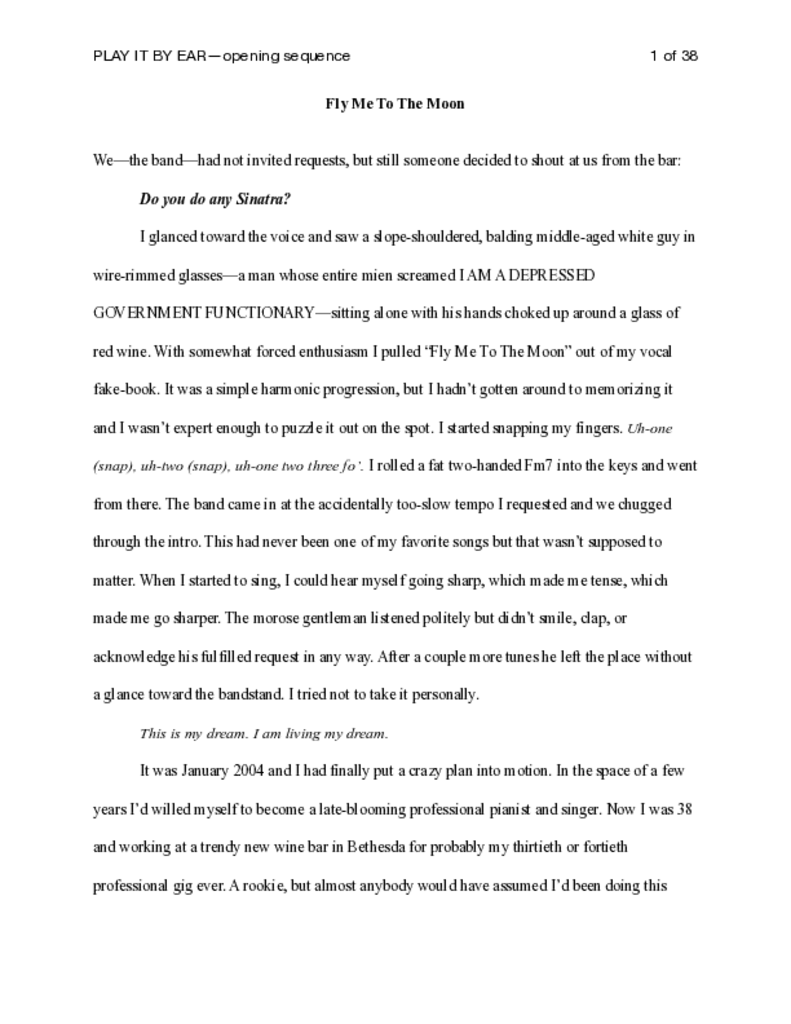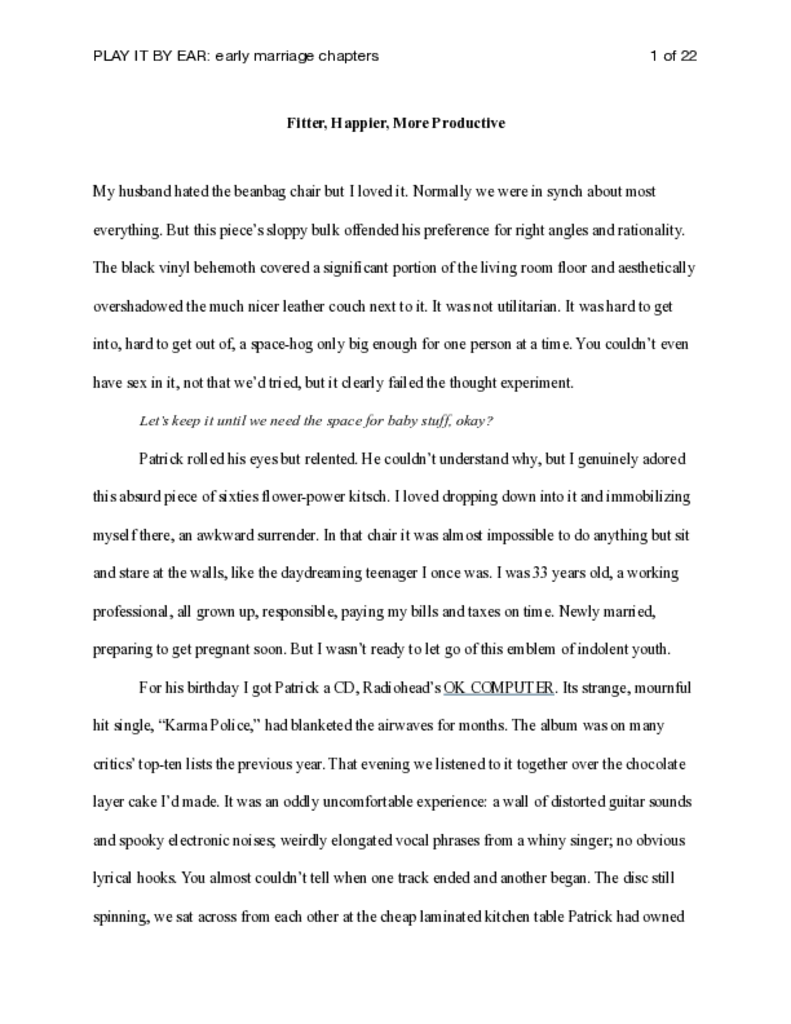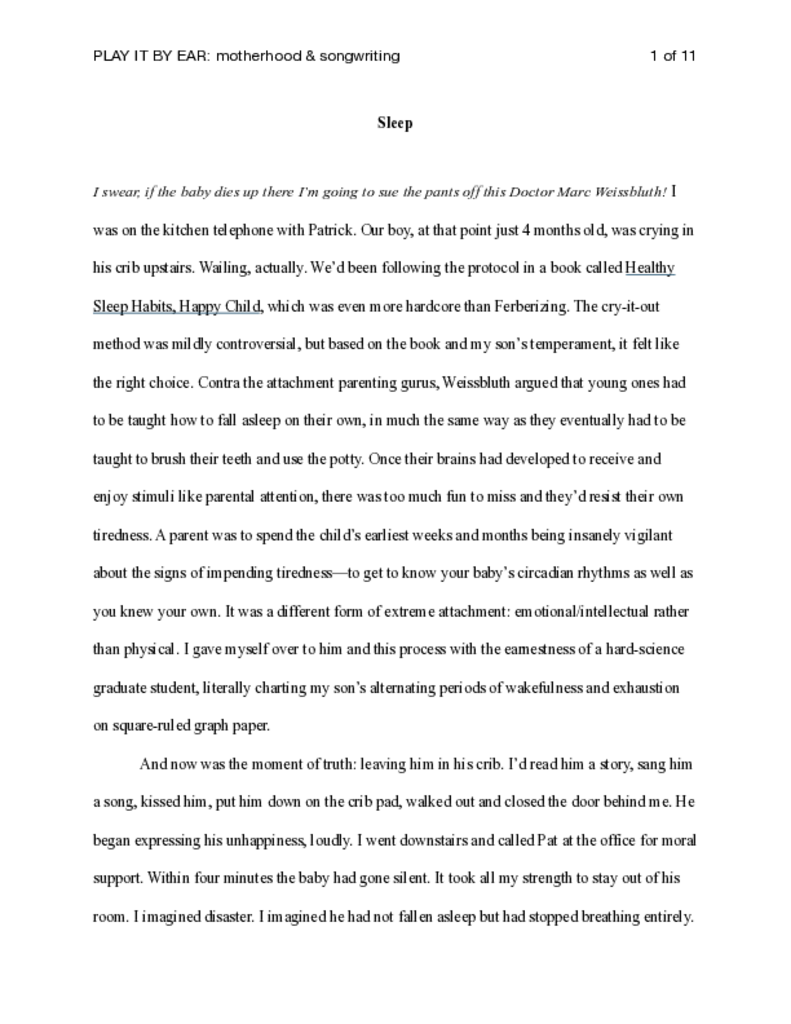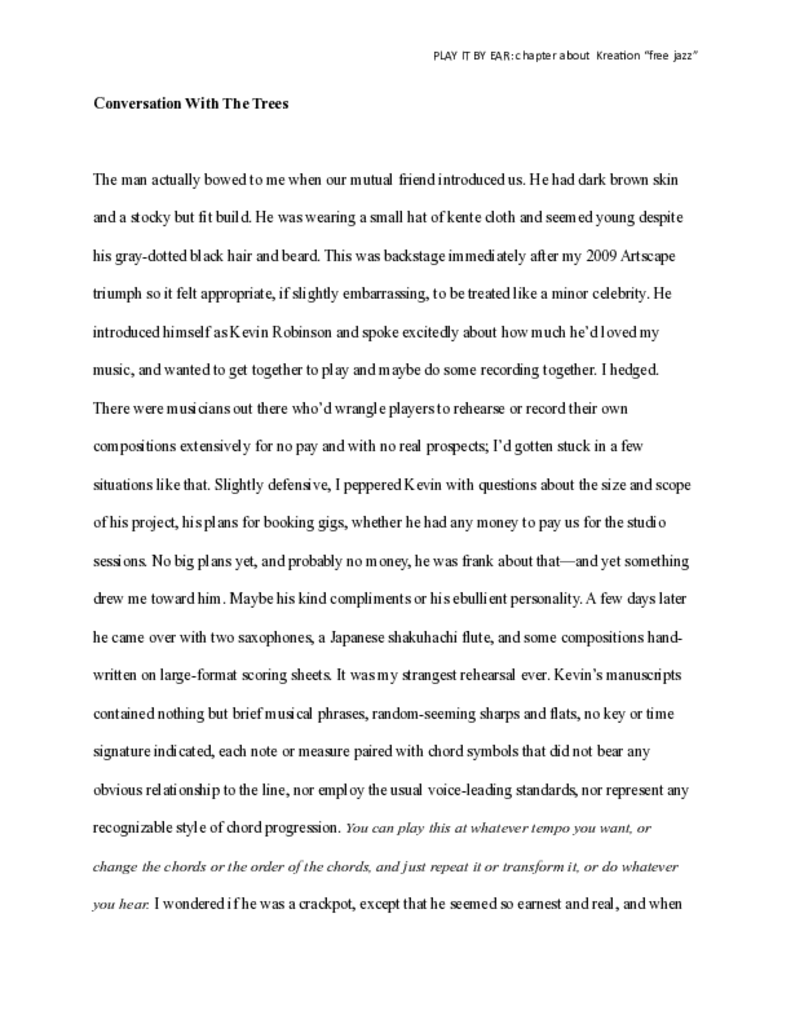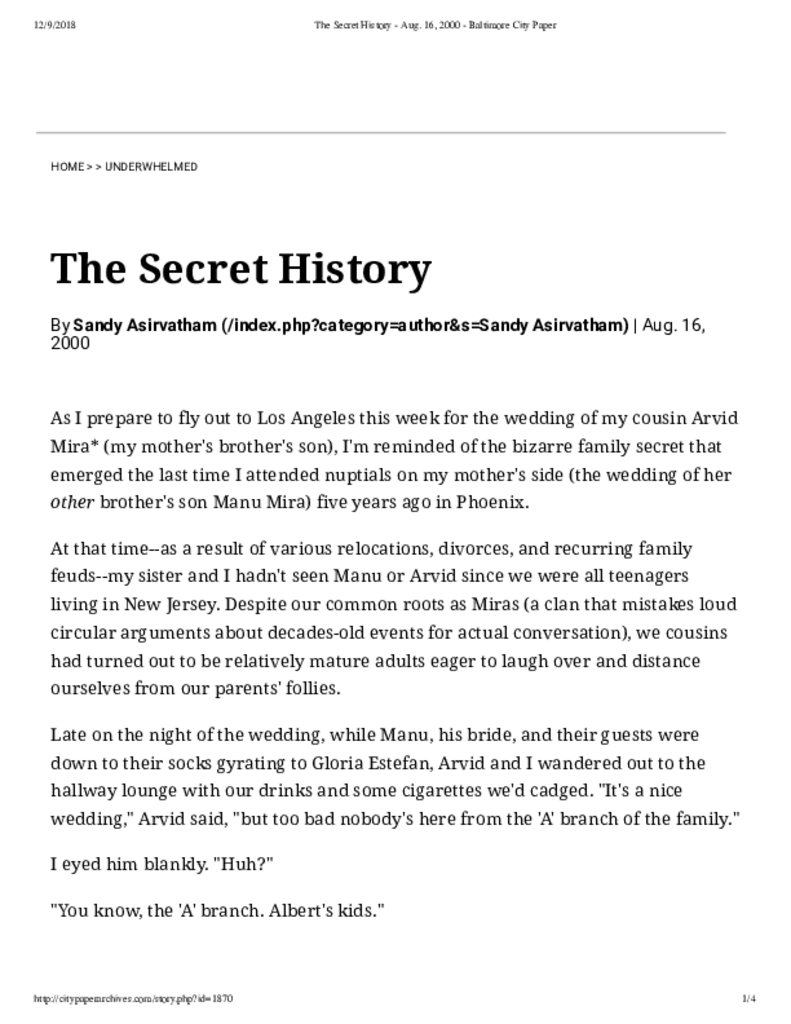About Sandhya (Sandy)

A multi-discipline creative force in Baltimore since hte late 90s, Sandy Asirvatham, now known artistically by her full first name, Sandhya, is poised to break nationally with her newest project, INNOCENT MONSTER. This art-rock album contains ten original songs featuring vivid lyrics over deep-pocket grooves, all tied together by Sandhya's charismatic voice and bold choices at the piao. It embodies a throwback 70s-80s-90s FM radio sensibility that perfectly suits what Rolling Stone… more
studio CD and major concert: MOBTOWN MOON (2013)
COMPLETED PROJECT
“Wildly eclectic, yet consistently absorbing.” ... Baltimore City Paper
Mobtown Moon studio CD (released May 2013) is a new interpretation of Pink Floyd's The Dark Side of the Moon album, co-produced by me and ellen cherry with the participation of 40 outstanding Baltimore-based musicians in rock, jazz, classical, hip-hop and other styles of music.
Our genre-defying version of this classic album highlights the lyrical and melodic beauty of the original, by taking the songs out of their stadium-rock context and reconsidering them from a grown-up, singer-focused perspective. Baltimore CityPaper called it "wildly eclectic yet consistently absorbing," while both CityPaper and Baltimore Magazine awarded it their respective "Best of Baltimore" honors. The CD has received coverage in many music blogs and we’ve been interviewed by several Internet and terrestrial radio stations around the nation. So far, we have been overwhelmed and grateful for the positive response to our venture.
We're especially proud that we were able to create a beautiful, unique, meaningful music product showcasing the tremendous talents of our friends and colleagues here in Charm City. Already, this project has spawned all sorts of new partnerships and creative ideas.
ORIGIN
I conceived the project in 2009 while listening to the original Floyd recording, which remains very moving and relevant four decades after its release. 2009 was a dark time in the country: we were reeling from the aftershocks of a global market meltdown and the beginning of an endless recession; we were still at war, still paranoid, still so at odds with each other politically, still in denial about things like growing income inequality and potentially catastrophic global climate change.
Personally, I was feeling the weight of unhappy current events, and also suffering my own private confusions. Listening at this time to Dark Side was a source of comfort and connection. It reminded me that every era of human history has been dark, has been filled with war and want, one way or another.
MUSICAL MISSION
As a jazz person, my inclination was to take this beautiful, sometimes sad, sometimes angry music and respond to it with meaning, in the same way that master jazz composers responded to Tin Pan Alley favorites or great European classical composers responded to the folk songs of their childhood: by revisiting, reinterpreting, and reinventing.
What I also wanted to do was avoid the traditional “tribute” album that simply recreates the original songs in the same form but with different players. There are already way too many Pink Floyd cover bands in existence and I have no interest in that kind of shallow mimicry.
I had a demonstrated knack for making interesting arrangements, but this kind of project was significantly more ambitious and potentially tricky. After all, many millions of people love the original album, which is still a perennial bestseller. To "mess" with these beloved songs was to take some amount of personal and professional risk, for sure--especially because it represented a fairly great leap compared with my earlier work.
COLLABORATIVE EFFORT
In 2010 I spoke about the project with my friend, award-winning singer-songwriter ellen cherry, who immediately loved the idea and met it with a vision of her own: to make a true Baltimore collaboration that demonstrated the depth and breadth of musical talent we have in this town. We created a partnership to make this dual vision happen, and then set to work: making two demo song recordings, fundraising through individual donors and grantmakers, partnering with local nonprofit collaborators (especially the Hearing and Speech Agency and MammoJam), developing a production and promotional timeline (we were determined to release the record in spring 2013, close to the 40th anniversary of the original recording’s release), recruiting and scheduling many busy musicians (which occasionally felt like herding cats), and doing all the executive work required to put together such a massive collaboration.
As the chief arranger, I was directly responsible for the arrangement/instrumentation/sonic details of 10 of our 12 tracks, and indirectly for 2 more done in collaboration with the instrumentalists who played on them. (ellen took over the arranging for one track entirely, and she is also fully responsible for art-directing our beautiful album cover and for our entire project “look.”)
MUSICIANS ON THE ALBUM
Andrew Grimm (banjo)
Ben Frock (trumpet)
Brian Gundersdorf (vocals)
Brian Simms (piano, organ, accordion, vocals)
Bryan Young (bassoon)
Christian Stengle (drums)
Craig Alston (saxophone)
Cris Jacobs (vocals, guitar)
Dave Hadley (pedal steel)
David Ross (spoken word)
ellen cherry (vocals, cello, synths)
Eric Kennedy (drums)
Femi the DriFish (spoken word)
Frank Russo (drums)
Jake Leckie (bass)
Jeff Reed (bass)
Jen Smith (cello)
John Thomakos (drums)
Kate Zahradnik (viola)
Katie Graybeal (vocals)
Lea Gilmore (vocals)
Matt Everhart (bass)
Mike Gambone (drums)
Nick Currie (violin)
OrchKids choir (10 students with director Dion Cunningham)
Patrick Klink (vocals)
Russsell Kirk (saxophone)
Sandy Asirvatham (vocals, piano, synth keyboards)
Tim Anderson (cello)
Todd Marcus (clarinet)
Scott Smith (guitars, percussion, recording engineer)
Vincent Stringer (vocals)
Warren Boes (guitar)
CD RELEASE PARTY
We were thrilled to present our premiere performance of MOBTOWN MOON at the Kraushaar Auditorium in front of more than 800 fans. We had an incredible cast--not everyone from the album, but close. Thirty of Baltimore's finest musicians in rock, jazz, classical, hip-hop, gospel, bluegrass, and opera/choral music were crowded on that stage together, making music and listening to each other as the audience of 700+ watched in wonderment. By the time the Baltimore Choral Arts Society came on for the last two songs, there were 50 of us on that stage. The communal feeling of the event was palpable. People cried at some of their favorite old Pink Floyd songs, reinterpreted here and presented by some of their favorite local artists. It was a thrilling and moving evening for all of us.
ellen has been in many big shows, but this was a personal milestone for her in terms of the size, ambition, and authority she had over the performance details. I handled pre-show stuff like press and finances. By the time we started actually playing music, most of our hardest work was well behind us, and while we had some musical duties, we also had the opportunity to relax a bit and enjoy our incredible musical friends doing their thing.
I would have to rank 9/28/13 as one of the best days of my life, along with marrying my husband and adopting our son.
Getting to sing my version of "The Great Gig In the Sky" was also simply a 30-year dream-come-true.
But really the most satisfying thing was this: After the show, so many of our stellar musicians--Jen and Scott Smith of Naked Blue, Jonathan Gilmore, Brian Simms, Warren Boes, Andrew Grimm and Dave Hadley of June Star, Dave and Femi of the 5th L, Jake Leckie--so many of these fine and highly experienced performers said to us:
"That was one of the best shows I've ever been in, in my life."
AND:
"When can we do it again?"
That was the REAL dream come true: the joy and respect of peers.
-
Breathe, arranged by Sandy AsirvathamBreathe was the first song I arranged for MOBTOWN MOON, a massive 3-year project co-produced with ellen cherry. This is our "world premiere" performance at Kraushaar Auditorium in Baltimore County. Such a thrilling way to start off one of the best evenings of my life.
-
Us and Them, arr. by S.A.In a way, this song was the kernel of the whole project. I used to play this arrangement and sing it myself in my quartet years ago, but for Mobtown Moon it was really an ideal vocal number for ellen's gorgeous plaintive sound. Hear it and try not to weep, people.
-
Brain Damage, arr. by S.A.Jonathan Gilmore takes the lead at the Mobtown Moon premiere performance September 28, 2013 at Kraushaar Auditorium
-
Any Colour You Like, arr. by S.A.I had fun taking the spacey guitar-jam elements of the original track and transforming them into a post-bop vehicle for the wild improvisations of Todd Marcus (bass clarinet), Derrick Michaels (saxophone), and Ben Frock (trumpet).
-
The Great Gig In The Sky, arr. by SAThe single most challenging vocal performance I've ever allowed myself to do. I had some melodic ideas worked out based on what I'd done for the recording, but I wanted to allow for improvisation, too. It just kind of happened, and felt so easy, especially with the incredible support of the audience and the stellar playing of the band behind me. A profoundly meaningful personal moment. And also the only time when I really had to work hard during this show--otherwise, everybody else was doing all the heavy musical lifting.
-
Eclipse, arr. by S. A.Jen Smith, Pat Klink, Brian Simms, and ellen cherry lead off the vocals, and then the Baltimore Choral Arts Society (director Tom Hall) blows the roof off
-
Money, arr. by S.A. and the bandAndrew Grimm (of June Star) takes the lead at the Mobtown Moon premiere performance September 28, 2013 at Kraushaar Auditorium
-
Time, arr. by SA and the bandBrian Simms (of Speakers of the House) takes the lead at the Mobtown Moon premiere performance September 28, 2013 at Kraushaar Auditorium
-
On the Run, arr. by ellen cherryellen's terrific reimagining of what originally was an electronics-only track. She likes to call its sound "banjo whales." That's the famous Grimm on banjo and Dave Hadley on pedal steel--both of June Star.
-
MOBTOWN MOON (2013)
personal memoir: PLAY IT BY EAR: AN AMERICAN ANTHEM (excerpts)
COMPLETED PROJECT, IN SEARCH OF PUBLICATION: Manuscript complete, after over 10 years and probably seven full rewrites. I am currently making some additional cuts for narrative pacing, and am seeking an agent. Among the chapters excerpted here, some tell stories related to various songs posted under my music projects.
The child of financially successful but damaged (and damaging) parents, I tried to heal childhood wounds, forge a stable identity, and become a happier, kinder mother than my own--all through music. PLAY IT BY EAR: An American Anthem, is the story my alternately joyous and painful quest, sometimes successful, sometimes laden with emotional traps. The book's voice is of a mature woman listening back on several decades years of her life to hear its themes & variations, the underlying rhythms that have driven her.
PLAY IT BY EAR is also a timely story about race and citizenship. Born here in 1965—same year that the USA stopped deliberately blocking non-white immigrants—I was the arts-obsessed daughter of Indian doctors. Unhappily married, steeped in their own bad families-of-origin, my mother and father were often verbally abusive and emotionally irresponsible. My mother grew up penniless, my father grew up rich, but from both I got the poisonous message that a child’s only real worth is measured in dollars earned and class status attained.
Fired up on radio hits, rock anthems, and Broadway showstoppers, I wanted no part of this perverse value system. I was an American girl: brash, loud, opinionated. I’d become a singer, actor, writer, star. Auteur, even. My relatives belittled me because I didn’t conform to Indian good-girlhood or the extended family’s fundamentalist Christianity. I also refused to go to medical school. Why be rich-and-miserable like Mom and Dad? But friends, teachers, other Americans understood. It was my citizen’s birthright to do what I loved (and eventually some money would follow….right?)
I lived this credo in my head but didn’t get very far in the world. I was hampered by pain, rage, and the paradoxical help/hindrance of upper-middle-class privilege. Successful as a journalist, I tried writing novels but hit emotional and technical roadblocks. During a terrible infertility struggle, I went into near-suicidal crisis, almost upending my marriage and abandoning the entire idea of motherhood (something I'd been ambivalent about anyway). I desperately feared getting lost in the same household misery I'd known in my youth.
What saved me was a late-blooming, serious return to music. In my mid-30s, with a certain amount of chutzpah, I willed myself to become a professional pianist and singer. My depression abated; I regained youthful confidence, found marital balance, and became a much better mother than my own. My newfound obsession with improvisational jazz—where listening and empathy are foundational skills—plus the instant bond with my adopted infant son, together unearthed a capacity for unconditional love (as well as a surprising new knack for writing original songs).
There were ironies, though. Yearning for the spotlight, was I just reinforcing my parents’ self-absorption and neediness? Turning my passion into a career, had I merely found another way to equate personal value with dollars earned (CDs sold, gigs booked, MySpace fans added…)?
As it turned out, this reduction of self-worth to net worth was no mere immigrant mindset but a deeply, darkly American one: an ascendant force that had perverted our sense of commonwealth, damaged our self-image as a nation of immigrants, and landed us a financial con artist as president. It was the culture in which I too--despite my surface rebellion--had been helplessly steeped since girlhood.
PLAY IT BY EAR is thus both a deeply personal story and one that's been shaped by the same large cultural, economic, and historical forces that have left so many Americans bewildered and destabilized. I think many readers--artists or not--will relate to its ups and downs.
-
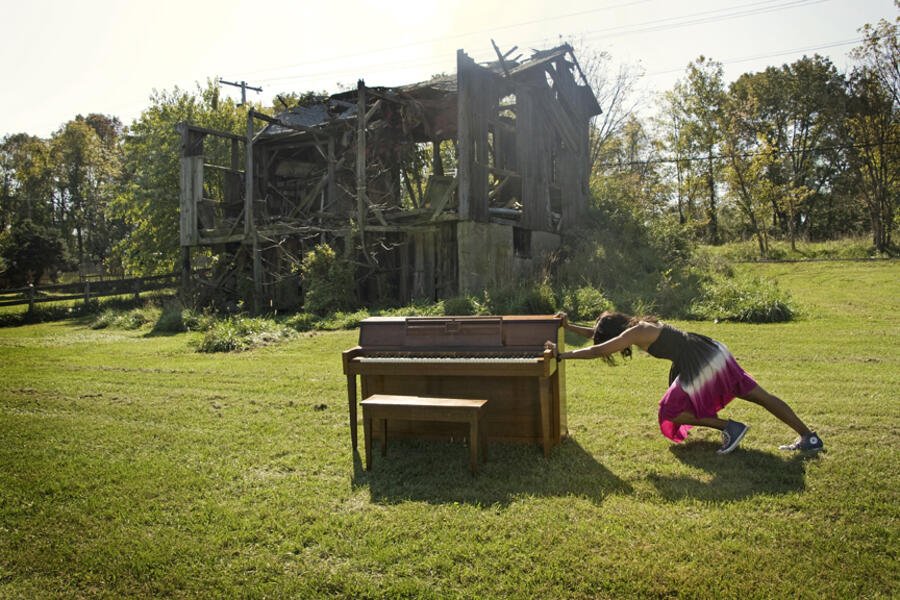 IMG_1264_int.jpg
IMG_1264_int.jpg -
PIBE opening sequence.pdfWe—the band—had not invited requests, but still someone decided to shout at us from the bar: Do you do any Sinatra? I glanced toward the voice and saw a slope-shouldered, balding middle-aged white guy in wire-rimmed glasses—a man whose entire mien screamed I AM A DEPRESSED GOVERNMENT FUNCTIONARY—sitting alone with his hands choked up around a glass of red wine. With somewhat forced enthusiasm I pulled “Fly Me To The Moon” out of my vocal fake-book.
-
PIBE early marriage chapters.pdfMy husband hated the beanbag chair but I loved it. Normally we were in synch about most everything. But this piece’s sloppy bulk offended his preference for right angles and rationality. The black vinyl behemoth covered a significant portion of the living room floor and aesthetically overshadowed the much nicer leather couch next to it. It was not utilitarian. It was hard to get into, hard to get out of, a space-hog only big enough for one person at a time. You couldn’t even have sex in it, not that we’d tried, but it clearly failed the thought experiment.
-
PIBE motherhood and songwriting.pdfI swear, if the baby dies up there I’m going to sue the pants off this Doctor Marc Weissbluth! I was on the kitchen telephone with Patrick. Our boy, at that point just 4 months old, was crying in his crib upstairs. Wailing, actually. We’d been following the protocol in a book called Healthy Sleep Habits, Happy Child, which was even more hardcore than Ferberizing. The cry-it-out method was mildly controversial, but based on the book and my son’s temperament, it felt like the right choice. Contra the attachment parenting gurus, Weissbluth argued that young ones had to be taught how to fall asleep on their own, in much the same way as they eventually had to be taught to brush their teeth and use the potty. Once their brains had developed to receive and enjoy stimuli like parental attention, there was too much fun to miss and they’d resist their own tiredness.
-
PIBE Kreation chapter.pdfThe man actually bowed to me when our mutual friend introduced us. He had dark brown skin and a stocky but fit build. He was wearing a small hat of kente cloth and seemed young despite his gray-dotted black hair and beard. This was backstage immediately after my 2009 Artscape triumph so it felt appropriate, if slightly embarrassing, to be treated like a minor celebrity. He introduced himself as Kevin Robinson and spoke excitedly about how much he’d loved my music, and wanted to get together to play and maybe do some recording together. I hedged.
CD in progress: INNOCENT MONSTER (2019-2020 estimated)
INNOCENT MONSTER
All honest creators look back on old work and see flaws. Sometimes there's an embarrassment or even grief when dwelling on the fact that with a little more time, effort, skill, development, etc. you might have done better work. So next time you aim higher. The problem is how to get from the finished here to the dreamed-of there.
Most of these songs were written in a prolific flurry ten years ago or more, shortly after I released my debut disc, MEMOIR. I knew immediately that these were stronger compositions, with better hooks, more visual narratives, and a cohesive thematic vibe holding them together. (I suppose you could call that vibe..."If Carole King were a world-historical pessimist"....?)
My piano skills had improved quickly, but my voice....oh, that voice...I knew it was not sounding as good as it should, or could become. There were problems with intonation, a lack of resonance in places, and a kind of underlying ill-confidence that might make some listeners uncomfortable even if they can't pinpoint why.
Mostly, I had just thrown my fledgling effort out there into the world without much caution--a perfectly fine approach for a debut CD of the very first songs I'd ever written. I hesitated a long time before making my next move (and even conceived the massive Pink Floyd collaboration, MOBTOWN MOON, as a sneaky way of stalling my own individual progress, I suspect...). But now I was ready to achieve some new self-awareness and maturity as an artist.
As luck would have it, in 2018 I began working with vocal coach Pete Strobl, a fantastic musician who had recently moved to Baltimore County after decades in the LA rock scene. Pete has a deep background as a trained opera tenor, a longtime bassist and musical director for various touring rock bands, a recording studio manager, and a producer. But his true calling is as a mentor and coach: teaching musicians, including ones already working professionally, how to sing in a no-bullshit, scientifically grounded manner, how to create the most beautiful and authentic sounds they can.
Within a few weeks of our first lessons in February, Pete had retrained my breathing mechanics, helped me shed bad habits, strengthened my range, and uncovered better, more beautiful and powerful sounds. A few more months went by and my voice was cleaner, purer, and more "me" than it had been since grade school. The difference between my speaking voice and my singing voice almost disappeared.
Pete has recently agreed to help me produce my next album within a year or so. The seven tracks in this playlist--old songs that have been much improved by the work we've done together so far--will form the core of the new project, along with new material I'm working on now.
Along with the current demos I've posted ten-year-old live video versions of the songs "The Neighbors" and "Petting Zoo," performed at Jazzway 6004 with the stellar band of Frank Russo, Amy Shook, and Chris Kennedy. These were well-received in the moment but even then I knew I had better inside me, if only I could figure out how to access it. If you contrast these videos with the new demos in the playlist, I think you'll hear the stark difference right away. Less force, less pushing, less strain, less trying....more breathing and singing, breathing and singing, breathing and singing. It's that simple, or should be.
-
No video provider was found to handle the given URL. See the documentation for more information.Innocent Monster (demos for CD in progress) by Sandy AsirvathamPiano/vocal demos from Dec 2018.
-
older version of "The Neighbors"Posted so you can hear (I hope) the improvement in my vocal skills and approach between this video from 2009 and my demo tracks today.
-
older version of "Petting Zoo"A ten-year-old performance of "Petting Zoo" to contrast with my new demo recording.
future projects: one novel, one screenplay
A TYRANT FALLS IN LOVE
The story is a vivid, detailed dream in my mind, but I've only just begun to sketch the characters, structure the plot, do helpful reading/research, and write a few test pages. Given how busy I am with smaller intermittent projects and obligations, I suspect this epic-length concept may take me 10 years to draft in full.
I used to be a journalist, i.e., a purely deadline-driven writer. In 2017-2018 I finally taught myself the practice of sitting at your desk for several hours every day, without fail, in order to let the world of the book envelop and contain you...even if nobody is waiting for it on any particular date. But only by this total immersion was I able to let my best and most cohesive work emerge. Having finished a memoir--autobiographical, yes, but built scene by scene, with a real narrative engine driving it--I'm now getting flooded again with the same kinds of big, bold novel ideas that descended on me regularly in my (far less productive) youth. At this point, time and distraction are my only enemies.
A TYRANT FALLS IN LOVE will be a mock-epic, fake-historical novel inspired, indirectly, by the shock of Donald Trump's ascendance to the presidency in 2016. (Some of its roots, however, are much older than that and grounded in a certain sensitivity I've always had to issues of wealth and power--see "Blue Traveler," the 1998 piece I've also attached here.) Like so many Americans, I have been appalled and chastened to watch a classic authoritarian peresonality rise to power here. Trump is new on the local scene, yet by global standards, he is a walking cliche. The narcissism, corruption, and comical self-glorification are straight out of the dictator playbook. Even his quasi-incestuous relationship with his daughter echoes ancient and premodern imperial history. I see A TYRANT FALLS IN LOVE as a tragicomic fable about human behavior: the perpetual dialectic between power-sharing and tyranny, freedom and repression, love and hatred, peace and war, selflessness and greed. The omniscient narrator will indulge in occasional anachronisms for humorous effect and to create a certain mythic resonance.
UNFINISHED SCREENPLAY TREATMENT FOR
ACCIDENTAL TRIO
ACCIDENTAL TRIO (indie drama) In late 1970s New York, a cult-figure punk rocker—the estranged daughter of a famous civil rights attorney—learns of his unexpected death and abruptly quits the music scene in grief. Slowly she finds solace in music again, via the beautiful upright bass she has inherited from him. She’s helped by a mysteriously accomplished old woman pianist next door and a trumpet player who’s been stalking her.
-
A TYRANT FALLS IN LOVE preplan.pdfIn a long-ago empire of unspecified time and place, Robard, the imperial Master Builder, pursues a lifelong dream. A natural egalitarian who rose up from humble roots, Robard wants to provide all citizens rich and poor with running water and indoor plumbing as good as the system he and his fellow elites now enjoy. Over the decades of Robard's brilliant career, his dream is stymied again and again by other professional obligations, by courtly machinations, and by wars and instability fostered through three generations of a fractious, incestuous, glory-mad ruling family.
-
ACCIDENTAL TRIO treatment in progress.pdfACCIDENTAL TRIO (indie drama) In late 1970s New York, a cult-figure punk rocker—the estranged daughter of a famous civil rights attorney—learns of his unexpected death and abruptly quits the music scene in grief. Slowly she finds solace in music again, via the beautiful upright bass she has inherited from him. She’s helped by a mysteriously accomplished old woman pianist next door and a trumpet player who’s been stalking her.
soundtrack composition: THEO AND JOHN TALK NONSENSE (2018)
For the NYC-based novelist, playwright, and filmmaker John Reed, I composed and played a piano score on his quirky character study called Theo and John Talk Nonsense, starring character actor Theodore Bouloukis. The film was created from outtakes of three of John's previous projects in which the actor had appeared. Between takes, in conversation or just riffing on his life, Theo proved to be a charmer, often confident and self-aware, occasionally anxious and self-involved. He's a guy many of us artists can relate to.
I was proud and excited to be a part of this project. John requested something in the way of "ragtime" or "oldey-timey jazz." I suggested that those types of motifs should be counterbalanced with more modern sounds, so as not to sonically ridicule Theo in any way. There are subtly funny moments throughout the film but I didn't think we wanted to underscore the humor with music that sounded like a circus.
I first came up with a set of short melodic/harmonic themes to fit various parts of the film. (See the Soundcloud playlist for the "rough drafts" I demo'd on my home piano.) The goal was to prepare this basic material and some preliminary time cues in advance, but to otherwise to improvise my way through the film scene by scene. (I did a lot of 'shedding in the key of Db to get that lefthand stride bass-line up to tempo.) We did the shoot/audio capture in a lovely studio room at Opera America in midtown Manhattan. I'd had trouble sleeping the night before--two mewling cats at my friend's apartment proved unhelpful--but some coffee and donuts helped with that. In general my piano work that day was solid, or at least imperfect in just the right ways. John later made a few timing adjustments in edit, but for the most part this was my live, in-the-moment response to Theo's off-the-cuff commentary. A fun day and a fascinating project.
-
Theo and John Talk Nonsense, a film by John Reed (2018)A film of outtakes by novelist, playwright, and filmmaker John Reed. I composed/improvised the piano score and John filmed me syncing my sounds to the film. Then he went back in and cut me, and my hands, into the final edit--I appear in occasional footage starting at 47:15. He said he wanted to show how all aspects of a creative work like this involved collaboration.
-
Theo & John Talk Nonsense (demo themes) by Sandy AsirvathamRough tracks I recorded on my home piano, just to let director John Reed hear the themes I was developing for his film.
early published work: short fiction & "Underwhelmed" essays (90s-early 00s)
-
SHEATH, a short story published by Berkeley Fiction Review (2000)My right hand is a shark, the spiny metallic jacks are starfish I scoop and spit out, scoop and spit out. Three at a time, four at a time, five, six, seven, all eight. The pink rubber ball smudges the air going up and wipes its own trace away going down. ...
-
Archaeology of a Dream - Dec. 26, 2001 - Baltimore City Paper.pdfOn Sept. 15, 2001, still zombified by grief and fear, my husband and I drove to D.C. to attend our first information meeting about adoption. I cried in the car the whole way, convinced the world was soon going to end and there was no point in making plans.
-
Unforgettable - Sep. 11, 2002 - Baltimore City Paper.pdfI don't really want to contribute to this week's juggernaut of verbiage marking the first anniversary of the Sept. 11 terrorist attacks, but I also can't come up with a strong enough reason to resist doing so. Somehow I would feel I was being disrespectful and selfish to use this space today for any other topic. At the same time, I find myself sensing the inadequacy of words, their ultimate failure to encapsulate all the complex and contradictory sensations and thoughts generated by our year-old collective trauma.
-
Baby Makes . . . ? - Jul. 4, 2001 - Baltimore City Paper.pdfIn my late teens and early 20s, I'd occasionally mention that I didn't think I'd ever want to bear children. And the responses--from men, women, young, old, friends, and near-strangers--ranged from bemusement ("Don't be silly!") to extreme puzzlement ("What kind of woman doesn't want children?") to outright indignation, as if it were blasphemous to even voice such a thought.
-
Moment of Truth - May. 3, 2000 - Baltimore City Paper.pdfMost of us fantasize that, in a bad situation, we'll act with resolve and courage. It's awful being faced with the truth of your capacity for indecision and cowardice -- not to mention the truth that all those years of watching TV cop shows has taught you exactly nothing.
free jazz/spontaneous group composition (2009)
Kevin is a brilliant thinker on musical and creative topics, and just a really beautiful, intuitive composer and improviser. He inspires everyone he works with. Back in 2009, Kevin and I joined guitarist/percussionist Chris Taylor (also Baltimore native) in the recording studio of Maryland Institute College of Art. Composer/musical innovator Erik Spangler (Boom Bap Society) was our recording and mixing engineer.
Some small portion of our session was based on written-down melodic and harmonic material from Kevin, which we rehearsed briefly before recording. The vast majority of our sounds, however, were improvised spontaneously and collectively.
Kevin lives his life and pursues his music with an attitude of "Holy YES" to everything. When preparing us for gigs, he has said things like, "Okay, I have written this melody and it starts in G, but you can play it in whatever key you feel like, or with different rhythms, or just play whatever you want." Sometimes we'll be up on the bandstand at An die Musik in front of fifty listeners, and Kevin will surprise me with an announcement: "And now our pianist, Sandy, will introduce our next piece, which I'm calling Conversation With The Trees." Up until that very moment, I would not have expected to be playing an introduction--nor would I have ever heard that tune title before, because Kevin just made it up five minutes earlier.
The results of such wild experiments are free-form but also surprisingly "organized" on a deep level. That's what happens when you have sensitive musicians--the kind who listen harder than they play--all doing their best to work together.
What you do in such situations is use the vibe of the room, the suggestiveness of the song title, and your own momentary inspirations to create a new spontaneous composition on the keyboard--while trying not to worry about the fifty people listening to you. Truth be told, worry is not the primary emotion that wells up for me in these situations--instead, it's a kind of unexpected bravado. The very fact that there are listeners focused on what you're doing enables you to think more clearly and carefully as you build up brand-new melodies and harmonies, move by move, across the piano keys.
There is a profoundly social aspect to this kind of playing, too. Often times, I've met and shaken hands with a musician for the very first time right on the bandstand before we start, and within half an hour of close listening and responding, it feels as if we've been playing together for years. Once, at a KREation gig in a Harlem club called The Shrine, I found myself sitting at an out-of-tune, beat-up Fender Rhodes "suitcase" piano, with the drummer Shareef Taher positioned behind my back. We'd barely had time to say hello before hustling up to the stage. Even without making eye contact, we quickly established a simpatico rhythmic concept between the piano and the drums, one that made the whole evening a profound and forever memorable pleasure. It's these moments of deep connection and group creativity for which we improvising musicians live.
live jazz show: SA Quartet with Ben Frock, Jake Leckie, & Shareef Taher (2013)
This show was the last concert I did involving any "covers" (songs written by others). In 2018 I came to the conclusion that, while other people's music has been really important to my development as a pianist, singer, composer/arranger, and bandleader, the only songs that ultimately matter to me are my own. It's a frightening thing to admit to yourself--it makes your task as a "working musician" much much harder. Harder to sell records, harder to book rooms, harder to entice listeners. But this is the critical transformation I'm undergoing at the moment--from "working musician" to artist in full--and the only reason I feel justified in asking for grant and fan support in the coming months and years.
-
Smile (Charlie Chaplin)SA piano/vocals Jake Leckie bass Shareef Taher drums Ben Frock trumpet
-
Petting Zoo (Sandy Asirvatham)SA piano/vocals Shareef Taher drums Jake Leckie bass Ben Frock trumpet
-
Home With You (Sandy Asirvatham)SA vocals/piano Jake Leckie bass
-
Fake Plastic Trees (Radiohead)SA piano/vocals Shareef Taher drums Ben Frock guitar Jake Leckie bass
-
Consider Me Gone (Sting)SA piano/vocals Shareef Taher drums Ben Frock guitar Jake Leckie bass
-
Mark Me (Sandy Asirvatham)SA piano/vocals Jake Leckie bass Shareef Taher drums Ben Frock guitar
-
What Have You (Sandy Asirvatham)SA piano/vocals Jake Leckie bass Shareef Taher drums Ben Frock trumpet
-
Ring of Fire (Johnny Cash)SA piano/vocals Jake Leckie bass Ben Frock trumpet Shareef Taher drums
-
Maiden Voyage (Herbie Hancock)SA piano/vocals Ben Frock trumpet Jake Leckie bass Shareef Taher drums
-
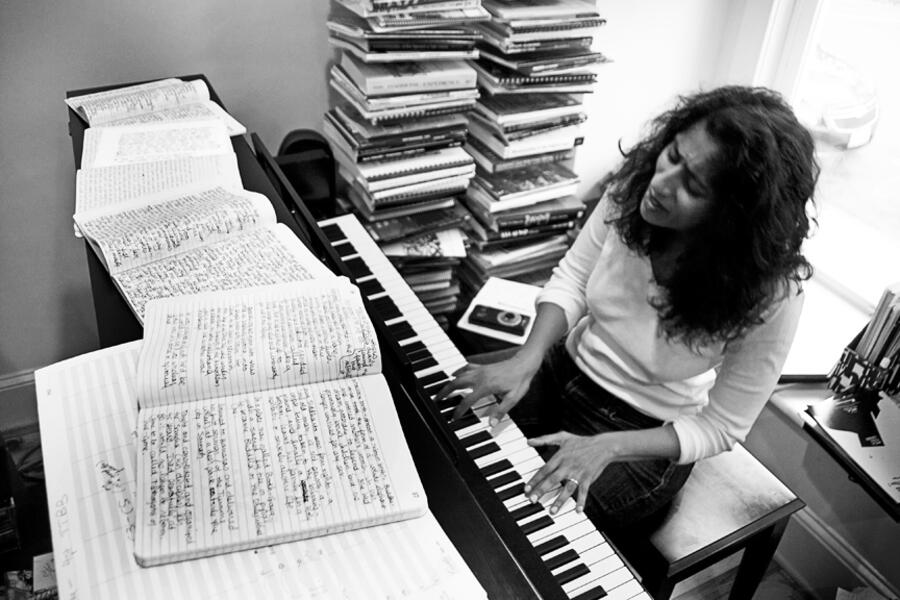 img_3356a_int.jpg
img_3356a_int.jpg


